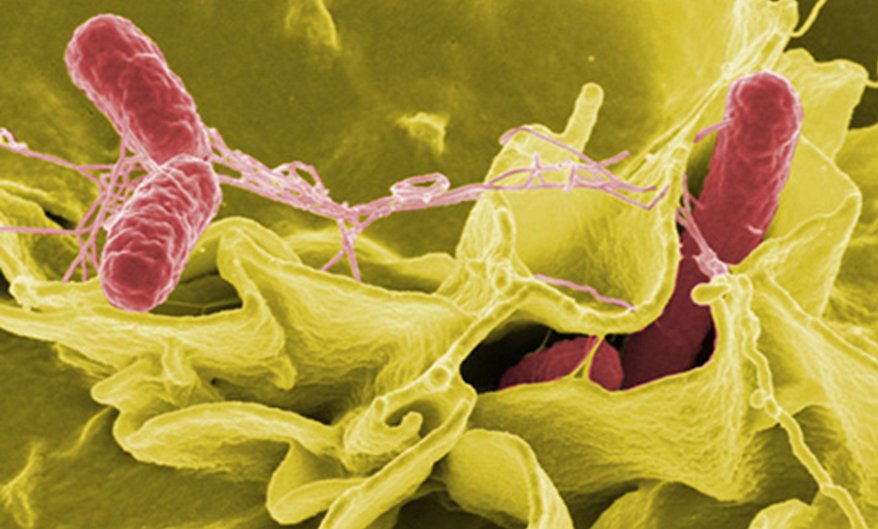The two most common causes of an upset stomach are food poisoning and stomach viruses. But how do we recognize the difference between the two?
Food poisoning occurs when you eat something that contains bacteria, viruses, or parasites, which can be present in cross-contaminated food. Cross-contamination occurs when these microorganisms are transferred from one type of food to another and grow exponentially, producing toxic substances that harm our intestines. Food poisoning symptoms include vomiting, fever, and stomach pain within six hours of contracting the virus. It may be as soon as an hour after you have eaten for symptoms to appear. The pain then clears up in anywhere from a few hours to a few days, but usually lasts a day for most people.
Image source: Science Photo Library-SCIEPRO
A stomach virus, on the other hand, is an infection that affects the digestive system itself. Possible ways for the infection to develop include consuming food that contains the virus, drinking unclean water, or having mouth-to-mouth contact or exchange of bodily fluids with someone who has a stomach virus. Like food poisoning, stomach viruses can cause symptoms including vomiting and fever, but additional symptoms that are not seen in food poisoning include bloody diarrhea, loss of appetite, dizziness, and stomach cramps.
Treatments for food poisoning include replenishing your body with fluids, and in cases of bacterial food poisoning, taking antibiotics prescribed by your doctor. On the other hand, treatments for stomach viruses include drinking plenty of liquids, avoiding solid foods for a few hours, and slowly going back to solid foods with small portions and easily digestible foods. Dairy, fatty, and sugary foods should be avoided. Be careful of prescription drugs with a stomach virus, as they can irritate the stomach even more and may not work on some viral infections.
Prevention is key for both conditions. It is important to wash foods properly and store them at the right temperature. Keep raw foods separate from each other and wash your hands whenever handling more than one food at a time. Clean and disinfect common surfaces, and keep a distance from anyone who may be suffering from these stomach problems. Use these quick tips and tricks to determine what you’re suffering from next time and treat yourself accordingly—or even better, prevent it in the first place.
Featured Image Source: Salmonella Invades a Cultured Human Cell byNASA’s Marshall Space Flight Center










